Misra, D.C. (2009): Why we need e-civil services, mint, New Delhi, June 17, Wednesday, p-23, http://www.livemint.com/2009/06/16215553/Why-we-need-ecivil-services.html, (accessed: June 17, 2009).
Why we need e-civil services
The key step in India’s long-overdue governance reforms is making the bureaucracy more Web-oriented
D.C. Misra
One does not require either league tables or depressing newspaper reports to tell us that the Indian bureaucracy is passing through its gravest crisis since Independence. The telltale symptoms range from transfer and suspension of public officials without rhyme or reason to elusive public service delivery. The very fact that in her address to Parliament on 4 June, our President mentioned “governance reform” as one of the 10 priority areas for the next five years shows that the government is aware of the need to reform bureaucracy at the highest level.
Two remedies are normally suggested to redress the situation: first, the appointment of political appointees from the private sector, as is done in the US; second, less state involvement. These, have not worked. Political appointees have repeatedly failed in the US. As a result, calls are now being made to cut their numbers. Paul Verkuil, a professor of law at New York-based Yeshiva University, cites the study of Princeton professor David Lewis, which reported that “politically appointed bureau chiefs get systematically lower management grades than bureau chiefs drawn from the civil service”.
The state can and should shed extra baggage, as has already been done by privatization in a number of sectors since 1991. But certain state functions simply cannot be shed. These include defence, law and order, and public welfare.
For reforming Indian bureaucracy, the solution is twofold. First, instead of indulging in unproductive bureaucrat-bashing, we should strengthen the civil service. A state is as good (or as capable) as its bureaucracy. This requires radical improvements in the internal working of the civil service. A demoralized service is hardly an ideal instrument to serve the state and its citizens.
The vast majority of the civil service stands demoralized today due to faulty recruitment, unfair promotion policies, subjective (that is, biased) performance assessment, unsympathetic transfer and posting policies and, above all, political interference. One quickly learns that it is neither hard work nor professional competence which enables satisfactory career progression. Rather, what’s important is one’s caste, class, region and political connections. This can, and does, break even the strongest of civil servants who still cherish the values of hard work, justice and fair play
Secondly, and more importantly, we should promote e-governance. This is where the wheel meets the road. Such reform has direct impact on public service delivery and thus matters most to citizens. After outstanding success in e-commerce (for e.g., railway reservation) and e-banking, there is no reason why e-governance (24x7 public service delivery online) should still elude us. But it is eluding us, notwithstanding the existence of departments of information technology at the Centre and states, as well as the implementation of an ambitious national e-governance plan. The progress of e-governance has been tardy and patchy so far. The reason? Once again, the civil service has failed to meet the demands of e-governance. The solution thus lies in promoting the e-civil service.
In one sense, e-civil service is the use of artificial intelligence (AI) or software programs in discharging the functions of civil servants. This makes use of zero-touch technology (ZTT), or technology that does not involve human intervention. ZTT is far superior to human intervention as it is expected to minimize errors in the processing of cases. Consider, for example, the issue of passports. If issuing passports is based on the fulfilment of certain strict requirements, the job can be done by an AI agent. In fact, AI is suited to many such routine functions of government.
In another sense, the term e-civil service is used for civil servants discharging their functions as civil servants through an online interface. It is in this role that the bureaucracy is found seriously wanting. But it is again futile to blame the civil service —not bureaucrats, but rather their managers, are responsible for this plight. How do you, for example, expect civil servants to be tech-savvy when they are not formally trained in information and communication technologies (ICTs)? Reforming our governance should, therefore, start with training our civil service in ICTs.
The central issue in governance today is the yawning gap between the state and citizens. We are living in the 21st century, in the age of Facebook and Twitter. The old interface, Government 1.0 (one-way governance from government to citizens) is now history. Citizens are no longer passive recipients of public services. They now not only demand better, more efficient and value-added public services, but want to have a direct say in public policy formulation too.
Civil service reform must be approached as part of an introduction of Government 2.0 (two-way interactive government between the citizen and state). India already has the world’s fourth largest population of Internet users. It deserves e-civil service in its own right.
D.C. Misra is former chairman, Task Force for IT policy for Delhi. A different version of this article previously appeared on egov-india.blogspot.com. Comment at theirview@livemint.com
Wednesday, June 17, 2009
Subscribe to:
Post Comments (Atom)




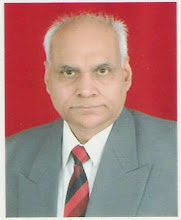

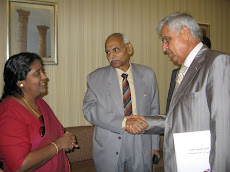
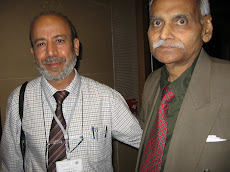
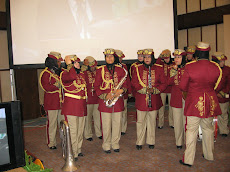
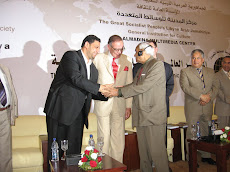

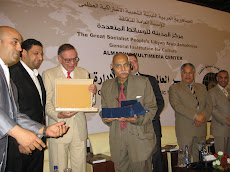


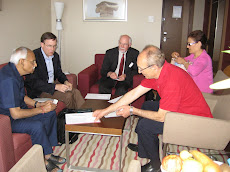
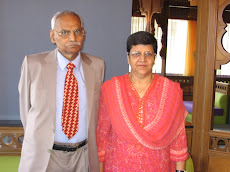
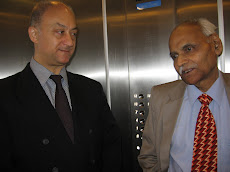
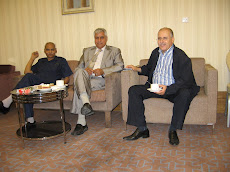
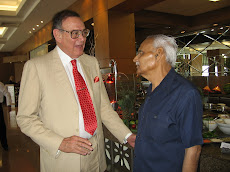

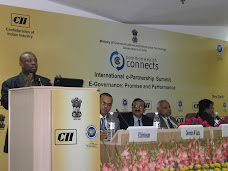









No comments:
Post a Comment